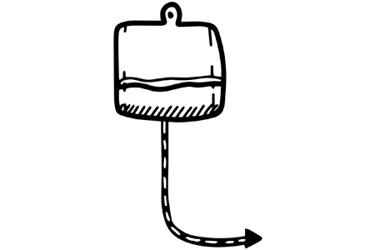Cell Therapy Logistics: Challenged By COVID-19

By Matthew Pillar, Editor, Bioprocess Online

There are plenty of barriers, many of them interrelated, to the accessibility of a biologic therapy to patients. Chief among them are manufacturability and manufacturing efficiency, and they’re acutely compounded by the global COVID-19 pandemic.
Kite Pharma’s Global Head of Technical Operations Charles Calderaro is no stranger to the pressure associated with addressing these challenges. He’s faced down similar issues in the past—he’s worked in just about every modality in biotech during a career that traversed Novartis, Genentech, Roche, and BioMarin, to name a few, prior to his arrival at Kite. We sat down with Calderaro to discuss the topic on episode 53 of the Business of Biotech podcast. Here are some highlights.
The Cell Therapy Manufacturing Stakes Are High

It's a valid point, given that the origin of the therapeutic vehicle are a patient’s own cells. That reality further raises the stakes. “Because we're starting with the patient's own T-cells, there is no inventory,” says Calderaro. “We can't rely on inventory, or ‘safety stock’ to make up for mistakes. We can't rely on inventory to hedge us in case there's an uptick in demand or a disruption in manufacturing.”
Cell Therapy Manufacturing Infrastructure: Akin To The Power Grid
Calderaro likens the manufacture and distribution of Kite’s cellular therapies to the invention and distribution of electric illumination. “Thomas Edison typically only gets credit for inventing the light bulb,” he says. “Many folks don't realize he also created the alternating current power distribution grid. In the late 1800sin lower Manhattan, he connected 60 homes to the power grid. They hit a switch and had electric light.”
At Kite, the light bulb is Yescarta, a therapy developed by taking a patient’s T-cells into one of the company’s soon to be three manufacturing facilities. There, the cells are transduced with a viral vector, which Calderaro describes as a cruise missile with a payload of DNA designed to instruct the T-cell to produce a chimeric antigen receptor with a CD19 affinity. “Distribution, or our ‘power grid,’ is the connection between those manufacturing facilities and 228 apheresis treatment centers,” he says. “Throughout the entire process—the 17 days from the moment of recess to the moment of infusion—we’re accountable from a GMP compliance perspective,” he says. That includes maintaining chain of custody and chain of identity to ensure that the patient receives their cells, and only their cells.
That level of speed and performance, he says, is unrivaled in other types of modalities.
Rapid, Precision Work Challenges Scalability
“We have to execute rapidly. We have to execute with a high level of reliability and a high level of precision and accuracy every single time, patient by patient,” says Calderaro. “That's what Kite is challenged with when we talk about scalability.” Kite started with a facility in Southern California, just outside of LA. It's licensed to produce all the company’s cell therapy products for all markets, but to serve globally, the company needed to expand globally. Last summer, its second facility was licensed just outside of Amsterdam to serve European and Middle Eastern countries, relieving the cost and time burden of flying patients’ cells from Europe, across the Atlantic to Southern California, and back again. Kite’s third facility is under construction in Maryland. “The new facility will pick up European volume, freeing up our California facility to take on more markets in Latin America and the Asia Pacific region,” says Calderaro. Kite is also scaling its viral vector manufacturing capabilities to support clinical and commercial operations. “That will give us the vertical integration of vector manufacturing and cell therapy manufacturing. Most other cell therapy companies rely on third parties for viral vector manufacturing, which can triple the cost per batch and more than quadruple the time it takes to manufacture the vector.”
Between its vertical integration of viral vector and clinical manufacturing facilities and a commercial network of three large facilities with expansion capacity, Calderaro says Kite’s infrastructure is well-positioned to meet the needs of its 200+ apheresis treatment centers and new market opportunities in Asia, Latin America, and the Middle East that we're starting to target.
Global Supply Chain + Global Pandemic = Global Problems
Border closings and flight restrictions during the COVID-19 pandemic have tested the company’s mettle. “We had to do a lot to overcome the challenges we faced so that, through the lens of the patient, there were no disruptions. Our global supply chain leader, Laura Alquist, manages trains, planes, and automobiles at Kite. She worked through the border closings, work directly with local authorities, our legal team, and public affairs to make sure what we were transporting was understood,” says Calderaro. The early days of the pandemic, when flights were constantly canceled, was particularly vexing. It’s not a trivial matter to take a cell therapy that’s shipped at -250 degrees Celsius and put it on any plane in any airport. “We had to work very hard to overcome the logistical challenges, particularly in some remote countries where the apheresis treatment centers are far from a hub. We had a lot of work to do to ensure freedom of movement, both in-country and across borders. It was really tough during the first six- to eight-months, but we never missed an apheresis and we never missed a patient delivery. No patient went without treatment during the pandemic.”
Follow along with the entire conversation on episode 53 of the Business of Biotech, where we cover the implementation of automation processes and technologies that are helping Kite achieve global scale in the manufacture and distribution of its cell therapies.
